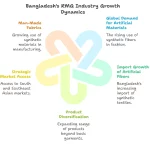
Final rule regarding “Made in the USA” claims
On July 14, the U.S. Federal Trade Commission (FTC) published its final rule regarding “Made in the USA” claims. The rule does not impose any new requirements on businesses. Instead, it codifies the FTC’s longstanding enforcement policy statement regarding U.S.-origin claims. By codifying this guidance into a formal rule, FTC can impose penalties for non-compliance. The rule applies to product labels and promotional materials associated with direct sales of a product, including electronic and written promotional materials.
The rule prohibits marketers from including unqualified Made in USA claims on labels and promotional materials unless:
- Final assembly or processing of the product occurs in the United States;
- All significant processing that goes into the product occurs in the United States; and
- All or virtually all ingredients or components of the product are made and sourced in the United States.
The rule allows a marketer to seek an exemption, where evidence shows that an unqualified Made-in-USA claim is not deceptive and/or complies with alternative requirements designed to prevent fraud.
Background
In September 2020, ACA submitted comments to FTC on its then proposed rule for codifying requirements for “Made in the USA” (MUSA) label statements.
FTC considers products with more than a de minimis amount of components manufactured outside the United States as violating its MUSA requirements. In 1997, FTC formalized that policy in its Enforcement Policy Statement on U.S. Origin Claims (“Policy Statement”), elaborating that a marketer making an unqualified claim for its product should, at the time of the representation, have a reasonable basis for asserting that “all or virtually all” of the product is made in the United States.
In its comments, the American Coatings Association (ACA), noted that companies interpret the threshold of “all or virtually all ingredients” differently, using varying amounts of trace level components of foreign or unknown origin. As such, ACA sought additional FTC guidance for companies to assure labels meet FTC requirements, prior to modifying labels. ACA suggested that FTC provide additional guidance addressing percentage values and/or other guidance to assist manufacturers in determining the amount of trace components of foreign or unknown origin that can be included in a product, where the product is labeled with an unqualified “Made in USA” statement. Thresholds would promote consistent information to consumers.
ACA underscored further complication by changes in supply of raw materials: ACA member companies typically purchase raw materials from distributors; and these raw materials may be mixtures with some foreign produced components or raw materials in bulk form with a higher purity than mixtures. Due to these muddying factors, consumers may not receive consistent messaging with unqualified MUSA label statements. Thresholds and additional guidance from FTC would offer some clarification.
FTC issued the final rule with an effective date of Aug.13, 2021, just 30 days after final publication. ACA had urged FTC to consider delaying the effective date by one to three years from publication, considering companies’ good faith efforts to comply and navigate changing consumer perception. This would allow time for sale of old products already in distribution, often placed in distribution several years prior, while companies replenish supply with products with updated labels. Delayed enforcement would be consistent with FTC’s statement that this rule would “strengthen its enforcement program and make it easier for businesses to understand and comply with the law.” FTC declined, explaining that its rule codified existing guidance. In FTC’s view the rule is clear as written. It therefore does not need to extend the effective date.
The American Coatings Association (ACA) is a voluntary, nonprofit trade association working to advance the needs of the paint and coatings industry and the professionals who work in it, including: manufacturers, raw materials suppliers, distributors, and technical professionals. ACA serves as an advocate and ally for members on legislative, regulatory and judicial issues, and provides forums for the advancement and promotion of the industry through educational and professional development services.
Source: The American Coatings Association (ACA)




